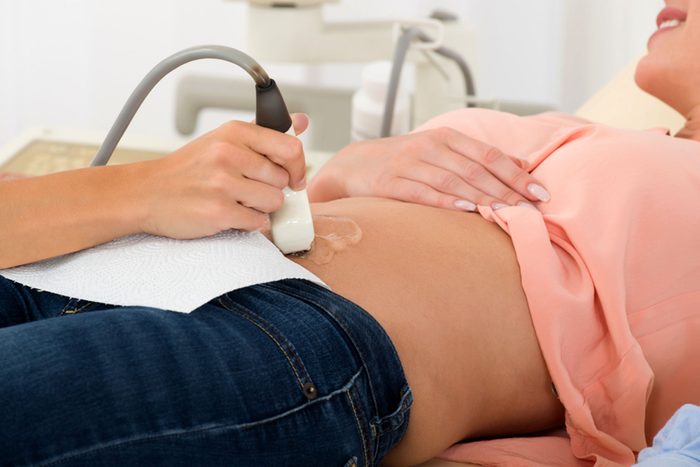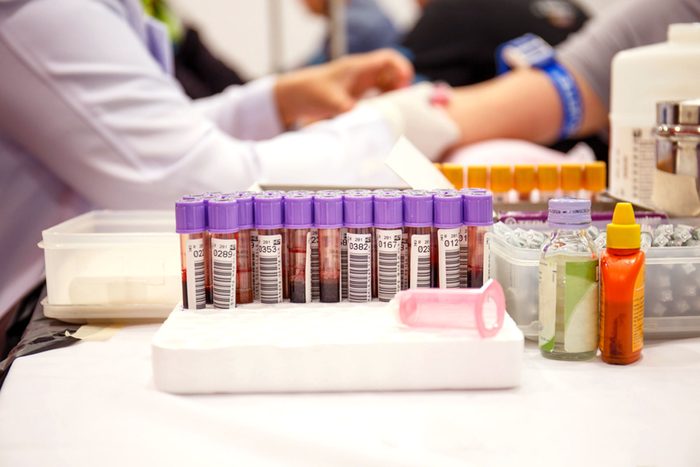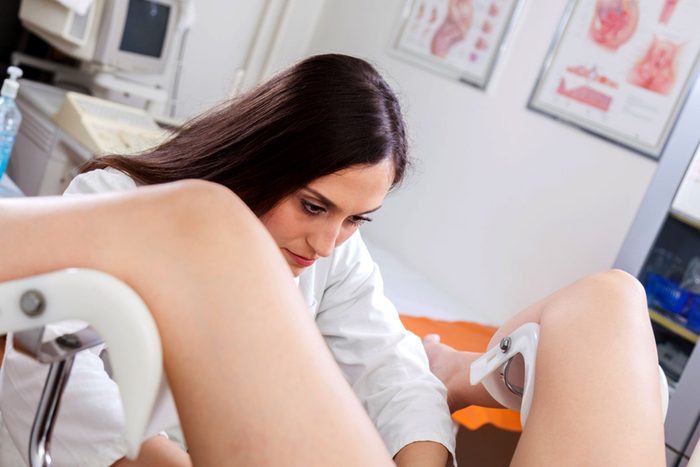
Age is not the only obstacle to fertility
What’s the right age to have a baby? That depends on many things, including where a person is in their life and their personal goals and priorities. However, it’s known that fertility tends to decline with age. While the age 35 is traditionally tossed around, Brian Levine, MD, the founding partner and practice director of the fertility clinic, CCRM-New York, says younger women could also have fertility problems, but don’t discover it until they begin trying to conceive.
As a general rule of thumb (which definitely varies by the individual, a partner, and their family history), women who are under 35 years old who would like to get pregnant but haven’t conceived after a year of unprotected sex should should seek medical attention. Those over 35 should give it six months before seeing their doctor, according to Dr. Levine.

Both quality and quantity of eggs decrease over time
The reason a woman’s fourth decade—those pivotal 30s—receive so much attention for family planning is that the older women get, the less fertile they become and the more likely their infants will have health issues. “The number and quality of eggs decrease as women get older, more precipitously after the mid- to late-30s making it more difficult to conceive,” says Paula Amato, MD, associate professor of ob-gyn at Oregon Health & Science University. “In addition, the risks of miscarriage and chromosomal abnormalities in the fetus increase as women get older.” (Here are a few foods that may help boost your fertility.)

Infertility isn’t just a woman’s issue
Dr. Levine notes that it takes two to make a baby. When you’re being tested for infertility, both men and women will be examined to see what issues may be going on. He says that approximately 40 percent of infertility is due to female issues, another 40 percent is due to male issues, and approximately 20 percent is for unclear reasons. Dr. Amato points out that certain lubricants used during intercourse can decrease sperm motility or survival. It’s important that both partners take fertility-promoting steps, such as watching their diet and other habits, too. Here’s what else men can do to boost their fertility.

An infertility evaluation isn’t expensive or difficult
Even if you’re nowhere near prepared to start your family, if you’re curious about your ability to get pregnant one day and just want to be reassured, Dr. Levine says there have been many advances in medicine over the past few decades to make the evaluation seamless. “In the early days of treating infertility patients, many of them underwent diagnostic surgeries to look for cysts, endometriosis, and other abnormalities,” he explained. “However, because of high-resolution ultrasounds, highly accurate blood work, and other imaging techniques, there is no need to do surgery on a patient unless there is a clear abnormality.” So what does it consist of today? Basically drawing blood and a few injections.

Fertility is dynamic, and the decline is unpredictable
Fertility is personal and can be unpredictable. While not having your period on a regular basis could hint there’s something wrong, it also could just mean you’re stressed. Everything has to do with what’s going on when you get tested. “Many assessments of fertility are impacted by the timing and type of test, and we know that when people make lifestyle changes, fertility can change. For example, if a woman takes up marathon training, she may notice her period goes away. If she stops training and regains her body fat, the normal cycle may resume,” Dr. Levine explains. “Along the same lines, without testing at an interval, it’s hard to tell from a single test whether someone has high, moderate, low, or declining fertility. (Did you know your beauty products could be causing infertility?)

Many causes of infertility are reversible
If you’re sitting in your ob-gyn’s office and they’re calmly explaining your fertility issue and you find yourself completely overwhelmed, take heart. Dr. Levine says that many causes of infertility can be easily reversed and solved with simple surgeries. These include blocked fallopian tubes, fibroids in the uterus, cysts on the ovaries, thyroid abnormalities, and others. After these procedures, most women go on to get pregnant on their own, or with the help of IVF treatments, Dr. Levine says. (Have PCOS? Don’t worry—you can still conceive.)

Egg freezing is a good option, but it’s not foolproof
One option to preserve your fertility is egg freezing. While prices vary depending on whether you go to your ob-gyn or a fertility clinic, most of the time patients aim to get as many eggs stored away as possible. Dr. Levine says the earlier in your life that you freeze your eggs, the better chances of success you will have. “A woman who freezes her eggs at 30 may get 10 to 20 oocytes frozen. However, If she were to wait to seek treatment until she is older, say 37, it’s possible that if she needs IVF, she may only get four or five eggs. Early preservation is always cheaper than multiple cycles later in life,” he explains. It’s important to note that there are no guarantees of pregnancy once you thaw and use your eggs; some eggs can be lost during the freeze-thaw cycle or won’t progress to the embryo stage after fertilization.

Having sex every day is not the best get-pregnant strategy
Though it might seem counterproductive to hold back on sex when you’re trying to make a baby, Dr. Amato says couples should really capitalize on those brief moments in which the fertility window is wide open. “The window is usually during the few (about 5) days just before and around ovulation. Ovulation generally occurs approximately 14 days before the onset of the next menstrual period,” she said. “Couples should have intercourse every 1 to 2 days during the fertile window.”

Drugstore buys can be helpful
Still in those first six months of trying to get pregnant, and you’re curious? It might not be time to set up a visit with your doctor who will likely advise you to keep trying for a few more months. Mary Jane Minkin, MD, clinical professor of obstetrics, gynecology, and reproductive sciences at Yale Medical School, suggests seeking some help from your local drugstore. “You can do an ovulation predictor test at home. I like basically all the First Response products—they are quite easy to use, and quite accurate,” she recommends. “If you do an ovulation predictor kit, and it says you aren’t ovulating, you definitely want to check in with your gynecologist. If you are ovulating, then you can exactly time when to have intercourse, to make sure you are hitting your most fertile time.

STIs can have lasting impact
Having sexually transmitted infections (STIs), including gonorrhea or chlamydia, can lead to permanent damage to your fallopian tubes, which bring the eggs into the uterus, says Dr. Minkin. That’s why when you begin the process of trying to conceive, you should let your ob-gyn know about your medical history, so he or she can provide the best care possible.

Keep your weight manageable and take prenatal vitamins
Even on those days when you don’t feel like exercising or you’d rather eat pizza for lunch, consider that lifestyle choices have an impact on your ability to conceive one day. Dr. Minkin says women who are overweight or underweight might both have issues getting pregnant, and a balanced number on the scale, based on your height, is your best choice. Also as Dr. Amato says, “Before attempting pregnancy, a woman should ensure she is healthy, make sure her immunizations are current, and take prenatal vitamins. Smoking, heavy alcohol consumption, heavy caffeine consumption, and the use of recreational drugs such as marijuana have all been associated with reduced fertility.”
Next, learn about the truth about the effects of pesticides on getting pregnant.
